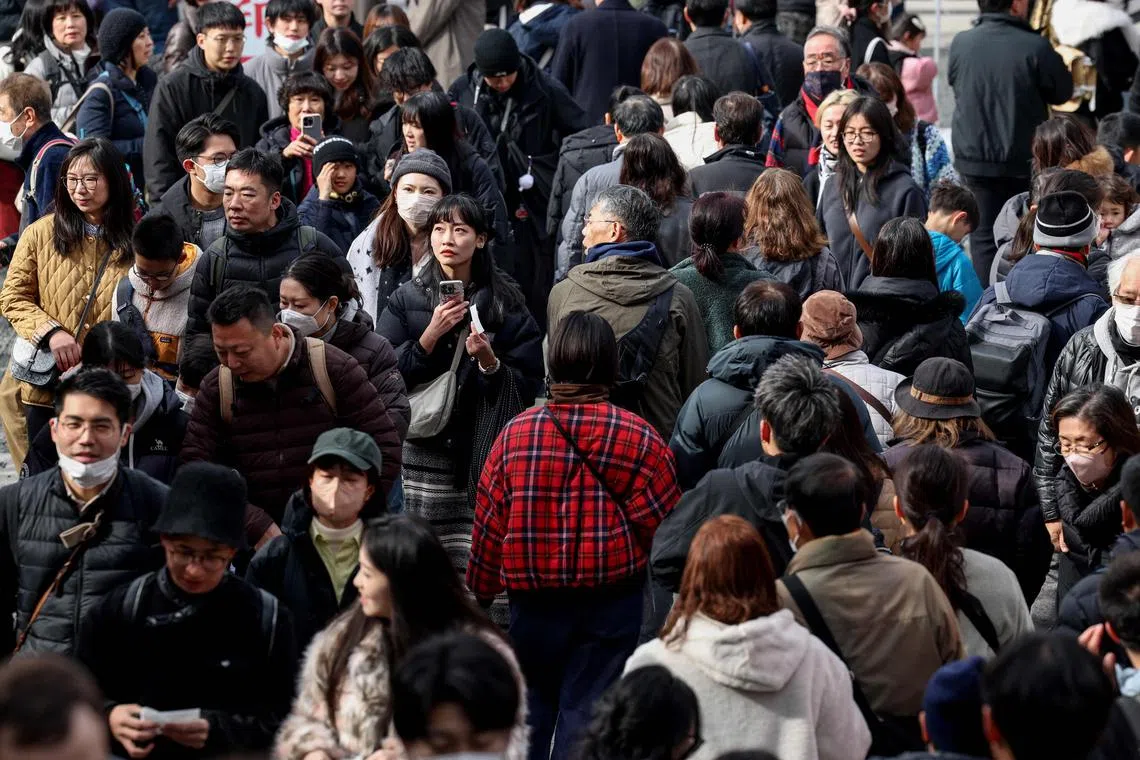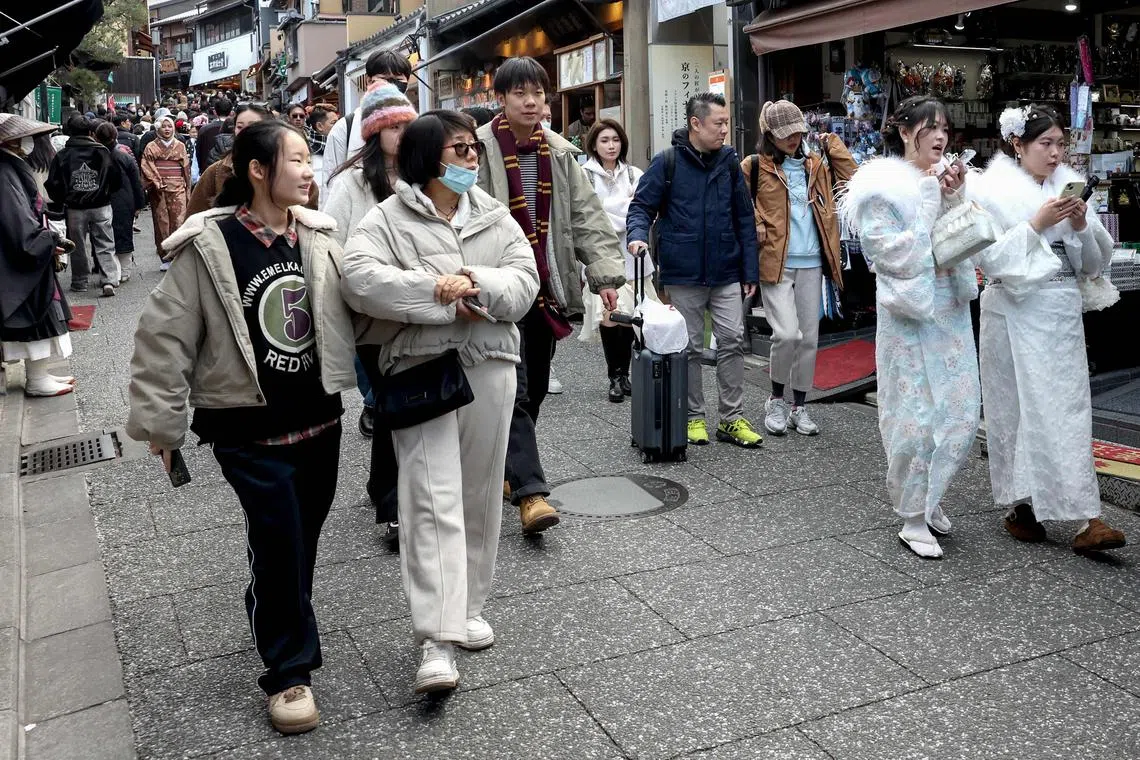Record 36.8 million tourists visited Japan in 2024 in return to pre-Covid-19 boom
Sign up now: Get insights on Asia's fast-moving developments

Tourists visit the Fushimi Inari Shrine in Kyoto, just a couple of hours from Tokyo by bullet train.
PHOTO: AFP
Follow topic:
TOKYO – Record numbers of tourists flocked to Japan in 2024, figures showed on Jan 15, as the weak yen bolstered the appeal of the “bucket list” destination despite overcrowding complaints in hotspots such as Kyoto.
The country logged more than 36.8 million tourist arrivals in 2024, topping 2019’s record of nearly 32 million, according to estimates from the Japan National Tourism Organisation.
It marks a return to a boom that began over a decade ago before being interrupted by the Covid-19 pandemic, with numbers up more than fourfold from 2012.
That is partly thanks to government policies to promote attractions from Mount Fuji’s majestic slopes to shrines and sushi bars in more far-flung parts of the archipelago.
Another factor is the cheap yen
Japan has long been a “bucket list” destination for many people, said Ms Naomi Mano, president of hospitality and events company Luxurique.
But it is “prime time because, at the moment, it’s like Japan is on a 30 per cent off sale”, she said.
Double trouble?
The government has set an ambitious target
The authorities say they want to spread sightseers more evenly around Japan and avoid a bottleneck of visitors eager to snap spring cherry blossoms or vivid autumn colours.
But, as in other global tourist magnets like Venice in Italy, there has been growing pushback from residents in destinations such as the ancient capital of Kyoto.
The tradition-steeped city, just a couple of hours from Tokyo on the bullet train, is famed for its kimono-clad geisha performers and increasingly crowded Buddhist temples.
Locals have complained of disrespectful tourists harassing the geisha in a frenzy for photos, as well as causing traffic congestion and littering.

Tourists walk past shops and restaurants near the Kiyomizu-dera Temple in Kyoto.
PHOTO: AFP
In a bid to improve the situation – and cash in – Kyoto on Jan 14 announced plans to hike lodging taxes
“If there’s a burden on the infrastructure, I do think taxing tourists is a good idea”, but Kyoto must find the “right balance”, Australian tourist Larry Cooke, 21, said.
Capsule executives
Exasperated officials have also taken steps elsewhere
In 2024, a barrier was briefly erected outside a convenience store to stop people standing in the road to photograph a view of the snow-capped volcano that had gone viral.
Some Japanese companies say they can no longer afford hotels in Tokyo and other major cities, as the high demand from tourists pushes up prices.
Several managers said they are seeking cheaper alternatives, from Airbnb lets to Japan’s famously claustrophobic capsule hotels.
IT company chief Yoshiki Kojima said he chose one with slightly more comfortable bed-sized pods that his employees liked.
“It’s clean, convenient and has a traditional shared bath house. My employees say it’s fun,” Mr Kojima said.
Economy
The economic benefits are clear, however, with experts noting that tourism is now second only to vehicle exports in terms of earnings.
Japan, which has a population of 124 million, still receives far fewer tourists than top destination France, which has a population of 68 million and welcomed 100 million visitors in 2023.
So its over-tourism woes are mainly because the influx “is centred around specific cities”, Luxurique’s Ms Mano said.
For example, the number of foreign visitors to Tokyo has doubled since 2019 and was up 1.5 times in Osaka.
But Ms Mano thinks the government can take steps to change this by promoting other parts of Japan and “making these easier to access – having more information available, being able to book activities in other rural areas”. AFP

